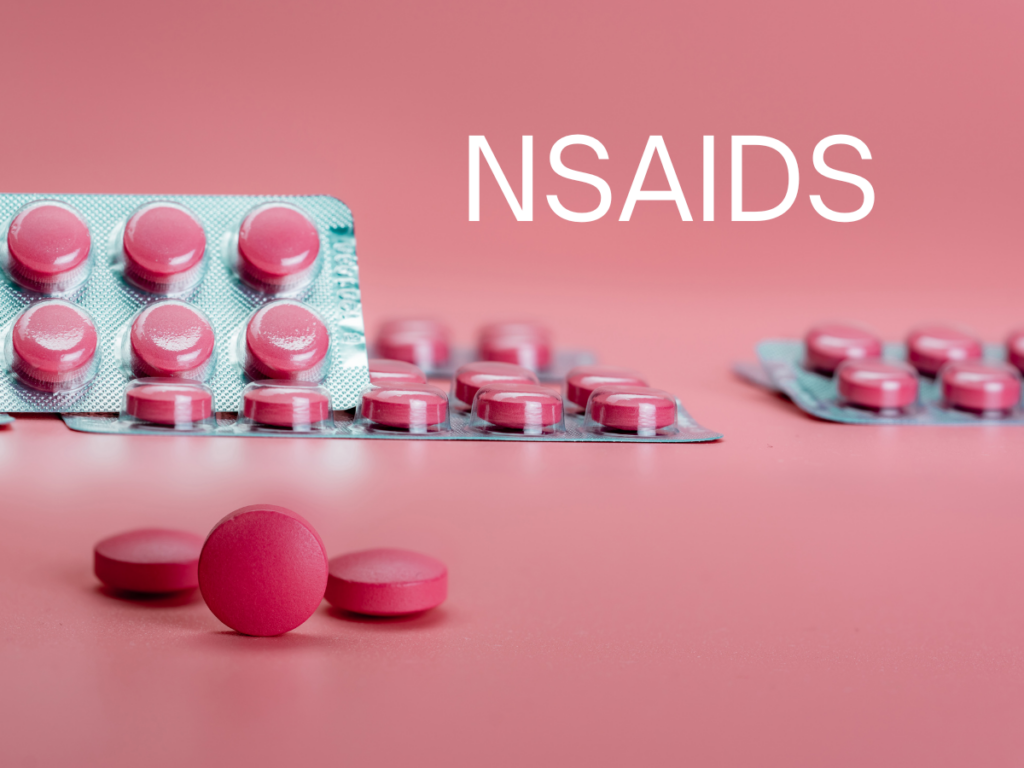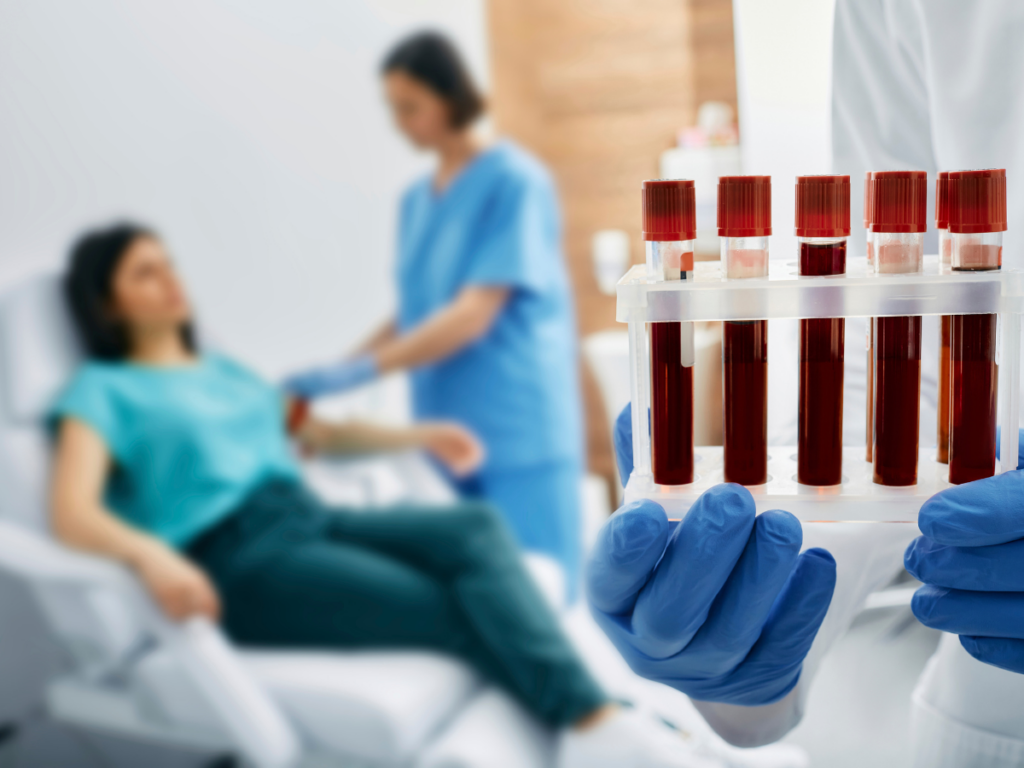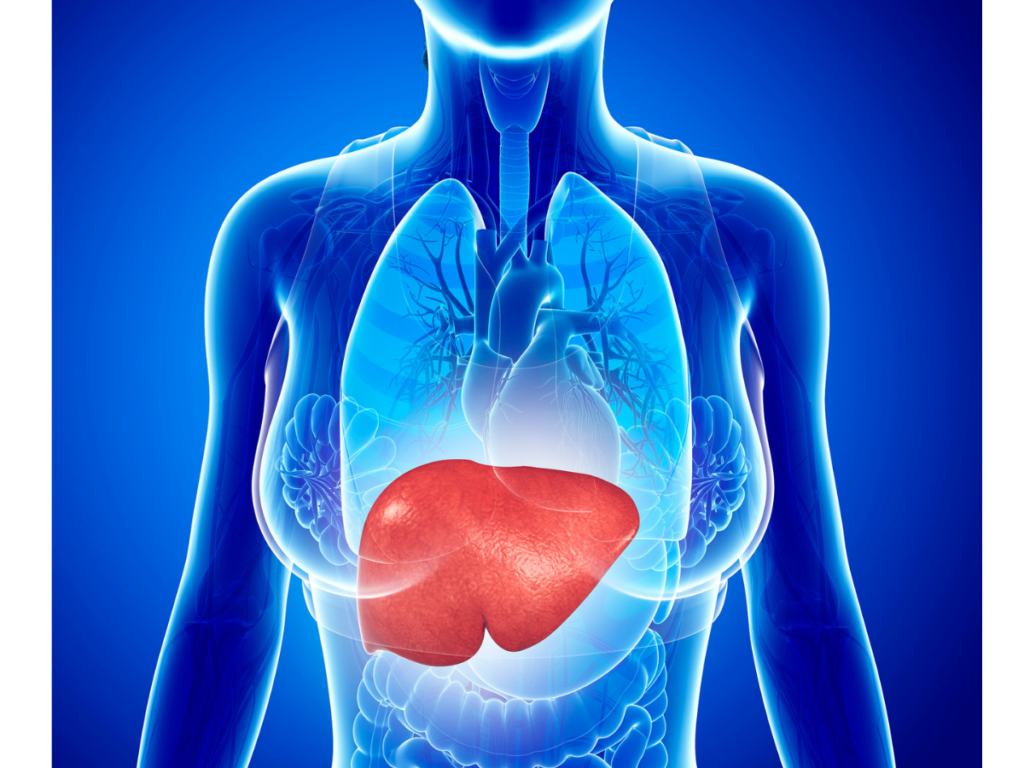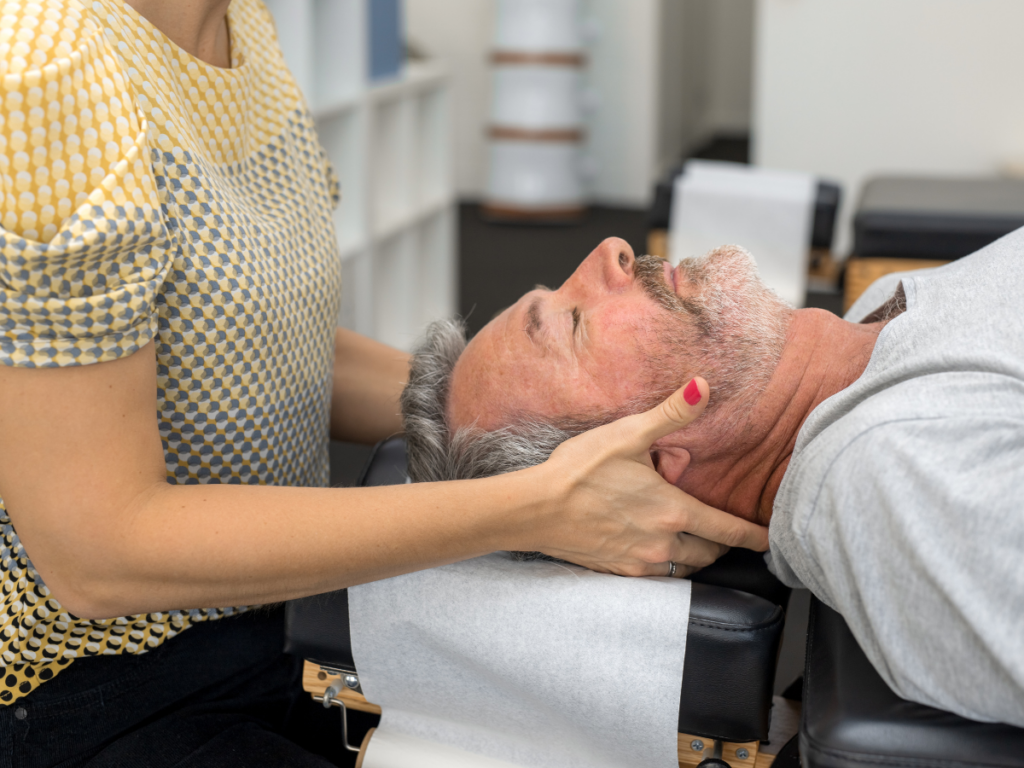By Claire Bacon, ACN, CNC
Premenstrual Syndrome (PMS) affects millions of girls and women, sometimes from the onset of menstruation, and sometimes only appearing later in life. The symptoms women experience can vary greatly from one person to another, and even from one month to another. It can be extremely difficult for the average woman to figure out what is causing her hormonal symptoms, even in this day and age when we all have an internet connection and a “Dr. Google.” The main point to understand is we are unique individuals – and the solutions for one person may not work for another.
The Problem with NSAIDs
Often, women will seek answers from their medical doctor. It’s only natural to start there, right? However, PMS is not a highly researched area of training for medical doctors, and they often don’t have knowledge of the tools needed to overcome these types of hormonal dysfunctions. Usually, we will be told to take non-steroidal anti-inflammatory drugs (NSAIDs, i.e. ibuprofen) to relieve cramps, even starting the drug several days before the onset of menses “just to be sure” you have it in your body in time. But although NSAIDS are inexpensive and commonly available, doesn’t mean they come without side effects.
Symptoms can be subtle or dramatic. It may take years, but one day you may realize that the abdominal cramping, blood in your stool, frequent bruising, acne, and gut dysbiosis/leaky gut syndrome was likely caused by years of eating NSAIDs like candy. Then what will you do?
Wide Range of Symptoms
And what about your other symptoms that come around every month (or every other month)? What remedies will your doctor give you for the crushing fatigue on Days 1 and 2? The cystic acne on your chin? How about the mood swings and irritability the week before or during your cycle? And what if your cycles are short (less than 28 days) or long (more than 32 days), or what if bleeding only lasts 2 days or is excessive, lasting a week? What if your breasts swell painfully and your stomach bloats like you’re 5 months pregnant? What can be done to remedy the nausea, vomiting, or even fainting you may experience? Surely, your doctor must have the answers! But sadly, often they do not.

Bad Advice
The bad advice that I, personally, have been told by a multitude of medical physicians include:
1. Take NSAIDS 800 mg 3 times a day, starting 3 days before your cycle begins.
2. Drink sports drinks during your cycle “to keep your electrolytes up”. Never mind about the sugar and all the artificial ingredients. (Neon is healthy!)
3. Use Retin-A for your acne, even if your skin turns red and continually peels off.
4. Use birth control pills to “regulate” your cycle, even if they deplete your B vitamins and leave your hormonal system weaker.
5. Stay home from school/work if you’re not up for it. Your boss won’t mind. 😉
6. You can’t be estrogen dominant because you’re not overweight, and no, there isn’t a way we can test for it.
7. No one knows what causes PMS. Good luck – you will probably grow out of it.
Unique to Me
After 20+ years of following this poor advice, I finally got to start learning the hard way about the leaky gut syndrome and reactive hypoglycemia I had caused. Of course, no one ever diagnosed me with anything like that – but I suffered with those symptoms, too, on top of my PMS, always wondering what was wrong and why couldn’t I ever find out what was really going on!
The worst thing that any doctor has told me happened when I was age 34. I went to see an endocrinologist – a specialized hormone doctor, right? Armed with a printout of my recent lab work, I believed that if I saw the right specialist, I would finally get the answers I was looking for. I wanted to break this endless cycle of symptoms!
The doctor reviewed all of my lab results, then told me I was “normal.” He said PMS was a mystery and there was nothing that could be done about it. He said that basically, unless I had a diagnosable condition like Diabetes, there was nothing he could do for me. And then – “at your age, you should just be happy you’re getting a period!” Can you believe I actually had to pay the co-pay for that visit! Seriously! What did I get for that experience? Not a thing! Years later, as I’m writing this, it still makes me angry.

Just Keep Searching for Your Answers
The truth is that there are many things you can do to improve a dysfunctional menstrual cycle. It doesn’t matter if someone diagnoses you with primary or secondary dysmenorrhea. Or kind of a condition with which someone tries to label you. It doesn’t matter if insurance will or will not pay for the things that get you better. The important thing is you find out the information that answers all your questions and you have the desire and motivation to follow through on a healing journey! Based on my years of experience, I feel it is essential that you have someone to guide you through the maze of natural remedies – and that is what I am here for!
How Your Hormones Work
First, let’s have a quick review of how your hormones work. It all starts in the brain, where a small gland called the hypothalamus secretes gonadotrophin-releasing hormone, which the pituitary recognizes and then releases hormones to the “downstream” glands, the adrenals and ovaries. The adrenals and ovaries respond with their own hormones, which are communicated back to the hypothalamus. The hypothalamus then turns off the signal when the system appears to have the right amounts of hormones communicating back. This is what we call the “negative feedback loop.” This circle of hormone communication directly influences whether we have normal timing of our menstrual cycle and ovulation, and normal flow and duration of menses.

Your Unique Liver Function
When it comes to the awful symptoms of pain, nausea and vomiting, we have to look to the proper functioning of the liver. The liver is responsible for hundreds of functions in the body, of which one that is very important is neutralizing and detoxifying excess hormones. Keep in mind that any organ/gland of the body can only do so much. If the liver is overburdened from neutralizing and detoxifying the not-so-healthy preservatives and additives from processed food, toxic alcohol and medications, along with the synthetic chemicals from fragrances and detergents, not to mention the parabens and contaminants from lotions and cosmetics, the liver will have a reduced capacity to also deal with the excess hormones that need to be flushed from the system.
Helpful Foods
A “congested liver” that is under-functioning may cause digestive symptoms as well as influencing how hormones act in the body. Foods like cruciferous vegetables, leafy greens, red beets, onions, garlic and eggs, as well as soluble and insoluble fiber, provide nutrients that keep the liver and colon running well and able to detoxify.
In addition, sufficient intake of essential fatty acids from Evening Primrose Oil and Borage Seed Oil help to produce anti-inflammatory prostaglandin hormones that are needed to keep painful menstrual cramps at bay.

Estrogen Imbalance
Women who experience heavy bleeding, fibroids and endometriosis really need to pay attention to how lifestyle choices combine to increase estrogen all month long. These lifestyle choices tend to involve consumption of unfermented soy products, and use of chemical hair products, detergents, cosmetics, creams and fragrances that contain “xenoestrogens” – chemicals that act like estrogen in the body. It is possible to have excess estrogen all month long due to these products, with normal progesterone, resulting in a relative deficiency of progesterone, also called “estrogen dominance”. It is also possible to have normal or low estrogen in the first half of the month (follicular phase) and low progesterone in the luteal phase, also resulting in a relative deficiency of progesterone.

Progesterone Creams
Generally, the strength of your hormones in the follicular phase and the strength of the responsive ovaries and adrenals will determine whether ovulation occurs, and this in turn determines how much progesterone is produced. Sometimes, women take matters into their own hands, and start using an OTC progesterone cream. This is easy to overdose and then causes a relative excess of progesterone at the wrong times of the month. All of these scenarios cause imbalance in the signals that the glands are trying to “read” and cause dysfunction.
The Impact of Carbohydrates
Something that most people don’t know is that the ovaries are very sensitive to the amounts of sugar and starchy carbohydrates in our diet. With an excess of sugar, bread, pasta, white potatoes and rice, the pancreas is required to produce large amounts of insulin to keep blood sugar stable. Repeated high sugar meals eventually fatigue the pancreas, which is a stress to the system, and also contributes to fatiguing the adrenals. When the ovaries, pancreas and adrenals are fatigued from this continual onslaught, hormone production is going to be disturbed, and a variety of uncomfortable symptoms (insatiable cravings, changes in energy and mood, or sleep) can ensue.

Adrenal Weakness May Be Unique to Your PMS
If you have:
- crushing fatigue on Days 1 and 2,
- brain fog,
- inability to deal with social situations and stress,
- fainting or
- panic attacks,
…these are all symptoms of weak adrenal hormones. The answer is to take adrenal support month-long and then increasing the support at times when you need it most. This will help to calm your anxiety and bring the world back to normal. Adrenal Desiccated is our best bang-for-the-buck for this purpose!
Some women experience bloating, breast tenderness, headaches and swelling of the face, hands and feet during their monthly cycle. These symptoms that relate to your ability to regulate fluids depend on the hypothalamus, pituitary and the kidneys. Excess sugar intake causes major fluctuations in insulin, which can suppress ketoacid formation (factors that reduce fluid retention). Further, excess intake of processed table salt can disturb the delicate electrolyte balance, worsening symptoms.
Prostaglandin Balance and PMS
The key to resolving your unique set of symptoms is to identify the underlying causes of PMS. Get to the root cause! Then you can take action to correct these imbalances. Obviously, you need more of all the good things, and less of all the bad things! A DUTCH Complete test, possibly combined with blood or saliva testing, will help reveal the imbalance. Identify the weaknesses in the endocrine system and then strengthen them in a strategic way.
Your healing journey will likely involve glandular supplements, herbs and concentrated nutrients. A crucial piece will also be the dietary and lifestyle factors over which you have control. As far as how fast your symptoms will resolve, some will likely be quick and others may take longer. Your best results will be dependent on a full commitment from you to learn and to do all the things necessary to make changes from within.

Getting Your Unique Body Adjusted
You know, I haven’t even mentioned yet one of the very best ways to fix your hormones – to get adjusted! Chiropractic is the only way to resolve muscular-skeletal subluxations. When your joints are moving well, without interferences to the central nervous system, everything in the body works better. How do you expect your organs to receive the nutrients they need, if signaling is not working optimally? It really makes me sad how many women don’t get adjusted regularly. They just don’t experience the benefits of a fully functioning body.

Types of PMS
PMS-A: Anxiety (High estrogen, low progesterone)
PMS-A is the most common type and affects 70% of symptomatic women. Symptoms include anxiety, irritability and emotional instability. If this happens to you, you might notice that every little thing seems like a big deal. You might prefer to be left alone. An effective remedy for this is Chaste Tree Berry which works to raise progesterone.⠀However, skip the Chaste Tree if you also have spasmodic dysmenorrhea.
PMS-C: Cravings (High insulin during first half of cycle)
This PMS type affects 30% of PMS sufferers and the symptoms include cravings for carbs & sweets and an insatiable appetite, heart palpitations, headaches, fatigue and fainting. This sounds like hypoglycemia (low blood sugar), right? If this happens to you, you are a serious cookie monster and if you don’t find something sweet the week prior, you can’t function properly. Prioritize eating enough protein and healthy fats with every meal (such as avocados).⠀
PMS-D: Depression (Low estrogen, possible low serotonin)
Only 30% of PMS sufferers experience this, but it is commonly associated with PMS-A. Symptoms include depression, crying and confusion. Ever feel like you’re balling your eyes out for seemingly no reason? A great remedy for this is exercise as it’s a proven natural mood booster and while you might not feel like it, some gentle exercise like yoga will help boost serotonin and can help reduce cramps too.⠀
PMS-H: Hyper-Hydration (edema)
70% of PMS sufferers experience these symptoms, including slight weight gain, bloating, swelling of the face, hands and/or ankles and breast tenderness. This is known as hyper-hydration. Watch your sodium intake, combined with eating diuretic foods like celery, cucumber and parsley is recommended. ⠀
PMS-P: Pain (High pro-inflammatory prostaglandin activity)⠀
Those affected by PMS-P or dysmenorrhea (a lack of period), feel pain in the form of cramps either leading up to or during the days of their menstruation. Before calling in sick to work, try some magnesium (favorite: Cal-Ma Plus) or ginger tea to calm those muscles down.⠀
All the Effort is Worth It!
Remember, when your endocrine system is fully functional, you won’t have these problems. Soon, you will realize how good it is for your cycle to show up on time. It will last the right amount of time and not destroy you with symptoms. When you no longer need NSAIDs, you will know that all the efforts you made will be worth it! Not only that, but you will have the power to help any other woman you meet with the same problems. Get ready to be empowered!
There is no reason to wait when the answers are so close at hand. All it takes is a phone call to get the process started. We look forward to talking with you!
Like this Article?
Check out more of our blogs similar to this one…


